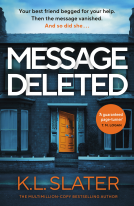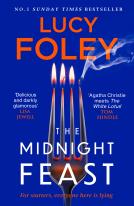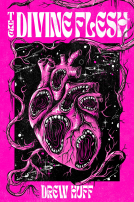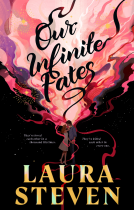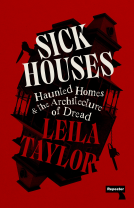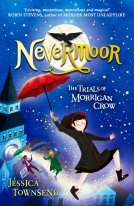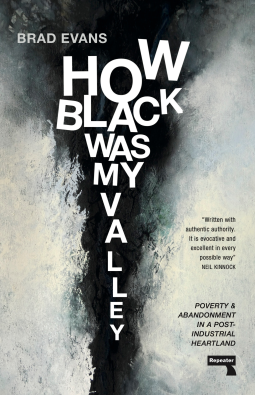
How Black Was My Valley
Poverty and Abandonment in Post-Industrial Wales
by Brad Evans
This title was previously available on NetGalley and is now archived.
Send NetGalley books directly to your Kindle or Kindle app
1
To read on a Kindle or Kindle app, please add kindle@netgalley.com as an approved email address to receive files in your Amazon account. Click here for step-by-step instructions.
2
Also find your Kindle email address within your Amazon account, and enter it here.
Pub Date 9 Apr 2024 | Archive Date 14 Jun 2024
Repeater Books | Repeater
Talking about this book? Use #HowBlackWasMyValley #NetGalley. More hashtag tips!
Description
"Written with authentic authority. It is evocative and excellent in every possible way." – Neil Kinnock
How Black Was My Valley offers a raw, unforgettable look into the post-industrial landscape of South Wales, capturing the impact of poverty, disaster, and lost futures on communities that once fueled the British Empire. This powerful account intertwines personal stories with political insights, revealing the deep scars left by decades of economic abandonment.
This compelling people's history explores the former mining communities of South Wales, shedding light on the hardship, isolation, and despair endured by those who once powered two world wars. Blending empathy and brutal honesty, the book travells through the dark shadows of the valley's past and present, confronting structural violence, lost opportunities, and the tragic rise in drug abuse and suicide.
Rejecting narratives of resilience, How Black Was My Valley is a journey into a community's unhealed wounds—a poignant testament to voices once silenced, now demanding to be heard.
Advance Praise
“Anybody interested in the history of working class resistance, and people’s daily struggles when confronting deep poverty blighting post-industrial communities should read this devastating study”
-- Paul Mason
“Evans’ beautifully crafted words and thoughts are now seared into me forever. Sit with each chapter for a while as its true devastation dawns on you. Thank God these stories are now being told. The boy of the valleys has come home and roared.”
-- Lucy Easthope, author of When the Dust Settles: Stories of Love, Loss and Hope from an Expert in Disaster
“A cliche-free, myth-lancing account of a ‘Coal Colony’ discarded by the powers that were after tearing use and relentless abuse. Sometimes lyrical, never romantic he offers analytical passion, acidic candour, some love, deep melancholy, dry mirth, scorn for nostalgia about ‘a past that never really existed’ and an unbreakable grip on truth.”
-- Neil Kinnock
“How Black Was My Valley is more than a memoir. Each carefully constructed sentence, every beautifully recorded or imagined moment, is placed alongside tragedy’s reality, ensuring that the ‘view from below’, as lived by the people who remain in the grip of economic marginalisation, is heard.”
--Phil Scraton, author of Hillsborough: The Truth
Available Editions
| EDITION | Other Format |
| ISBN | 9781913462840 |
| PRICE | US$24.95 (USD) |
| PAGES | 400 |
Available on NetGalley
Featured Reviews
 Tracey M, Bookseller
Tracey M, Bookseller
Intense and well researched. A milestone book (that all politicians should read).”
In the words of Conrad, ''The horror!... The horror!''
The author was brought up in poverty in the valleys of South Wales, which had for so long been reliant on the coal industry. He explains how it was to live in those places and how the way of life changed.
It's very comprehensive, in terms of describing the area geologically , but also its history, culture and traditions (eg chapels) It takes in a broad sweep of history whilst also meditating on what can be drawn from this. In places he is arguing for the poverty inflicted upon the local population as its own form of colonialism/ exploitation (although this lacks all the nuances and ambiguities within this argument that he explores) It's a world away from the romanticised film How Green Was My Valley, which the author reflects in the book's title.
The overwhelming "colour" is black, from the miners to the spoil heaps and the blackness of depression. The abstract pictures which are contained reflect this alternative "hell"
Of course a book about this area is going to be political and especially when it comes to the 80s with strikes and Margaret Thatcher. The author admits that he escaped through education and is no longer living here , which gives him the distance he needs to see it more clearly? However that also raises questions of loyalty and how valid it is to hold the views he does.
He draws on many sources from first person testimony, to the media, music, poetry and art.
Feelings run strongest in the chapter on Aberfan. If you don't know about Aberfan please look it up. You can feel how difficult it is for the author to write on this subject at all . He acknowledges that there are no words (see Conrad's quotation above) He quotes from some excellent poems in this chapter that perhaps do come the closest to expressing it.
He does also discuss contemporary issues like the tragic "spate" of suicides in this region as well as the numbers of people who are poor, depressed and lack hope.
I asked for an ARC of this book (thanks to the publishers ) as I am from North Wales and my Dad was a miner and then worked in the steelworks before that shut in the 80s- there are similar threads. It did make me question my "escape" from Wales but also reflect on the lives of family still there
I would characterise this book as intense and well researched. Brad Evans is also a political activist in his writing of this book. I just hope that local politicians and others read this milestone book.
I would advise reading the great "introduction " by Neil Kinnock- poetic and astute.
Readers who liked this book also liked:
Jenny Linford; National Trust Books
Cooking, Food & Wine, History, Travel


